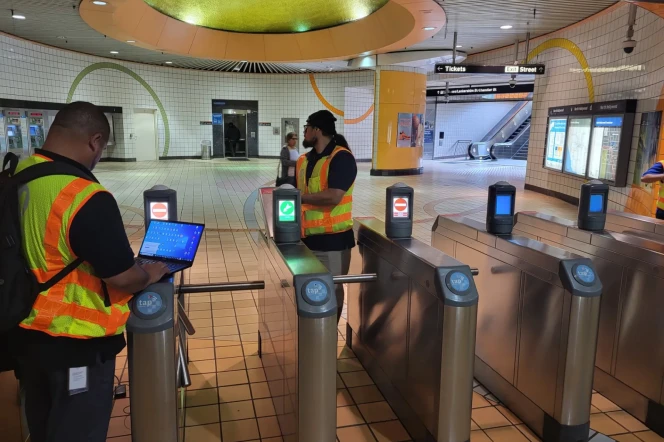With our free press under threat and federal funding for public media gone, your support matters more than ever. Help keep the LAist newsroom strong, become a monthly member or increase your support today.
Summer class regenerates student cultural roots
Second- and third-generation immigrants tend to lose the language and culture of their ancestors. KPCC’s Adolfo Guzman-Lopez has this report about high school students in a summer school course intended to break that pattern.
Adolfo Guzman-Lopez: Behind a UCLA classroom door, a dozen high school students are regenerating cultural roots that assimilation almost severed, says heritage language director Olga Kagan.
Olga Kagan: These kids are either first generation born here or a few of them are 1.5 generation, which means they came here early.
Guzman-Lopez: Let’s go in. [Door opens, Olga speaks in Russian.]
Guzman-Lopez: Grad student Larisa Karkafi, born and raised in the Ukraine, leads these Russian “heritage language” learners through a story about a World War II orphanage. They laugh when a student misses the subtle difference between the Russian words for salted meat and elephant meat.
These students are navigating a learning curve. The Russian most of these L.A. County students grew up speaking to their parents was limited to matters of the home. It didn’t reach to culture, politics, or more sophisticated topics.
[Tomer reads in Russian]
The strain of the effort surfaces in 17 year-old Tomer Stepnov’s voice as he reads from a workbook. He describes himself as a proud Russian-American. His family’s home in Woodland Hills is filled with the Russian music his parents love, and the aromas of his mother’s Russian cooking.
Tomer Stepnov: I know I want to teach my kids, but when I finish high school and go to college, I want to get an MBA, so I doubt I’ll be using it in my job ,but I definitely want to teach my kids and carry on the tradition.
Guzman-Lopez: UCLA’s offered these Russian classes for three summers. The university added a Hindi course this year. Enrollment for this summer’s Persian for Persians classes more than doubled.
[Teacher speaking Farsi]
On this day, Sheri Emami leads the class through the names of colors and holidays. Seventeen-year-old Michelle Nosratian says her parents stopped speaking to her in Farsi when she started first grade because they feared language confusion would hamper her progress in school. A few months ago at the family dinner table, Nosratian vowed to take a Persian class after she realized she couldn’t understand what her grandfather was saying.
Michelle Nosratian: I kept asking him to repeat it. And after a while I felt, I felt embarrassed that I couldn’t understand what I was saying. And he mumbled at the end, these kids are American, they’re not Persian, they were born here, they don’t know their heritage, their language.
Guzman-Lopez: The students in this class were born in the United States to parents who left Iran after its Islamic revolution 30 years ago. UCLA estimates that about 70,000 Persians live in Los Angeles County.
Instructor Emami grew up in Iran. She’s finishing graduate work at UCLA’s Near Eastern language and culture department. She drills these students on basic concepts and on present-day political turmoil in Iran.
Sheri Emami: They’re more proud of their culture, especially now with the stuff that is going on. They all want to learn about what’s going on in Iran right now.
Guzman-Lopez: Student Michelle Nosratian says these classes are opening up another world for her.
Nosratian: I went to a protest outside of the federal building, God there’s one every week now. I went there, before I took this class couldn’t read anything, didn’t know what the posters were saying. Afterwards, I saw everyone was wearing this t-shirt and I could read it, it said 'we’re here, we’re with you.'"
Guzman-Lopez: The U.S. State Department wants to foster that kind of cultural epiphany. Students pay $200 for the six-week language courses. But most of the support comes from federal grants created after the 9/11 terrorist attacks. They’re part of a wide-ranging government initiative to increase the number of American citizens who are fully bilingual in less commonly taught languages.
The teachers also learn. Instructor Sheri Emami says that growing up in Iran she often heard that Iranian-Americans had abandoned their culture. After seven years in this country, she realizes that’s not true.
Emami: I can’t really say if someone has been raised here that they can’t claim that they’re Iranian. It often happens that they’re much more knowledgeable than a lot of Iranians who are in Iran and they want to be Americanized.
Guzman-Lopez: The Persian phrase for Iranians who reject their culture is "karab zade." Emami says the high school students in her summer language heritage classes are helping to make that term obsolete.








